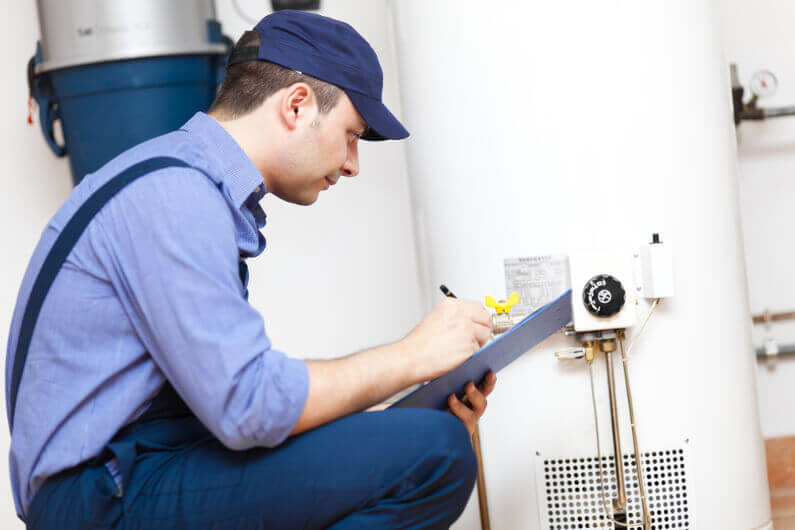Pay Attention to These 6 Crucial Clues of a Deteriorating Water Heater
Pay Attention to These 6 Crucial Clues of a Deteriorating Water Heater
Blog Article
In this article in the next paragraph you might get lots of sensible advice related to Early Signs of Water Heater Failure.

Often, the lag in your heater is simply a result of showering excessive or doing loads of laundry. There are instances when your equipment requires taking care of so you can continue appreciating hot water. Do not wait on broken hot water heater to give you a huge headache at the height of winter.
Rather, find out the warning signs that show your water heater is on its last leg before it totally conks out. When you discover these 6 red flags, call your plumber to do repair services prior to your device absolutely falls short and leakages all over.
Listening To Weird Seems
When uncommon sounds like touching as well as knocking on your device, this indicates sediment buildup. It is akin to sedimentary rocks, which are hard as well as make a lot of noise when banging against steel. If left ignored, these pieces can produce tears on the steel, triggering leakages.
You can still save your water heating unit by draining it and also cleansing it. Simply be mindful because dealing with this is dangerous, whether it is a gas or electric unit.
Producing Insufficient Warm Water
If there is not enough hot water for you and your family, yet you have not altered your intake practices, then that's the sign that your water heater is stopping working. Typically, growing families and also an added washroom suggest that you have to scale up to a bigger system to meet your needs.
However, when everything coincides, but your hot water heater unexpectedly doesn't satisfy your warm water requirements, consider a specialist evaluation due to the fact that your machine is not doing to standard.
Experiencing Fluctuations in Temperature
Your water heating system has a thermostat, and also the water produced ought to stay around that exact same temperature level you establish for the device. If your water comes to be also warm or too cold all of an abrupt, it can mean that your water heating system thermostat is no much longer doing its work.
Seeing Leakages as well as Puddles
Check to screws, pipes, and connectors when you see a water leakage. You might simply need to tighten some of them. If you see puddles gathered at the bottom of the heating device, you have to call for an instant assessment because it shows you've got an active leak that might be a concern with your tank itself or the pipes.
Noticing Cloudy or Odiferous Water
Does your water instantly stink like rotten eggs and look filthy? If you scent something unusual, your water heater could be acting up.
Aging Beyond Requirement Life-span
You need to take into consideration changing it if your water heating system is even more than 10 years old. That's the all-natural lifespan of this machine! With proper upkeep, you can expand it for a few more years. On the other hand, without a regular tune-up, the life expectancy can be shorter. You might think about water heater substitute if you understand your water heater is old, paired with the other concerns pointed out above.
Don't wait for damaged water heating systems to offer you a large migraine at the top of wintertime.
Your water heating system has a thermostat, and also the water generated need to remain around that very same temperature level you establish for the device. If your water comes to be as well cool or as well warm all of a sudden, it can suggest that your water heating system thermostat is no longer doing its task. If your water heating system is more than 10 years old, you must think about replacing it. You might think about water heating system substitute if you understand your water heating unit is old, coupled with the various other concerns pointed out above.
Recognizing the Signs of a Damaged Water Heater
Winter may be mostly behind us but having hot water in our homes is a necessity year-round. A broken water heater can be a time-consuming and costly problem.
Recognizing the signs of a water heater in distress, and knowing what to do about it, is the best way to avoid a full-blown water heater "meltdown."
Sediment buildup, rust, and high water pressure are some of the most common causes of water heater failure. Improper installation or equipment sizing are other commonly found issues. A leak can occur near the supply line which can cause damage to dry wall or flooring.
Like any appliance, frequent checks can prevent your water heater from becoming a big problem. Try to set an annual reminder to check for water pooling around your water heater and to tighten any loose fittings you might find. The quicker the issue is resolved, the less damage it will cause in the end.
If you do find signs that your water heater is broken or about to burst, the first thing to do is to shut it off. For gas water heaters, twist the dial at the top of the thermostat from ON to OFF. If it’s an electric heater, switch the circuit breaker to OFF.
Once the water heater is turned off follow these steps:
Turn off the water supply. Completely drain the water heater. Open the pressure relief valve. Rinse the water heater with cold water when the unit has finished draining. https://armstrongcomfort.com/Blog/things-that-can-cause-your-water-heater-to-break

We were shown that write-up on When Should You Replace Your Hot Water Heater? through a good friend on another website. Sharing is nice. Helping people is fun. We truly appreciate reading our article about When Should You Replace Your Hot Water Heater?.
Ensure top-quality plumbing repairs. Report this page